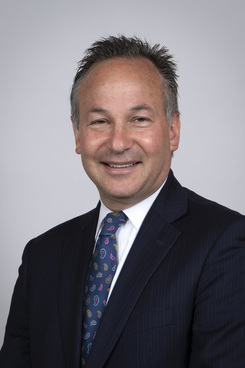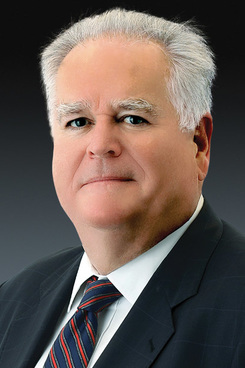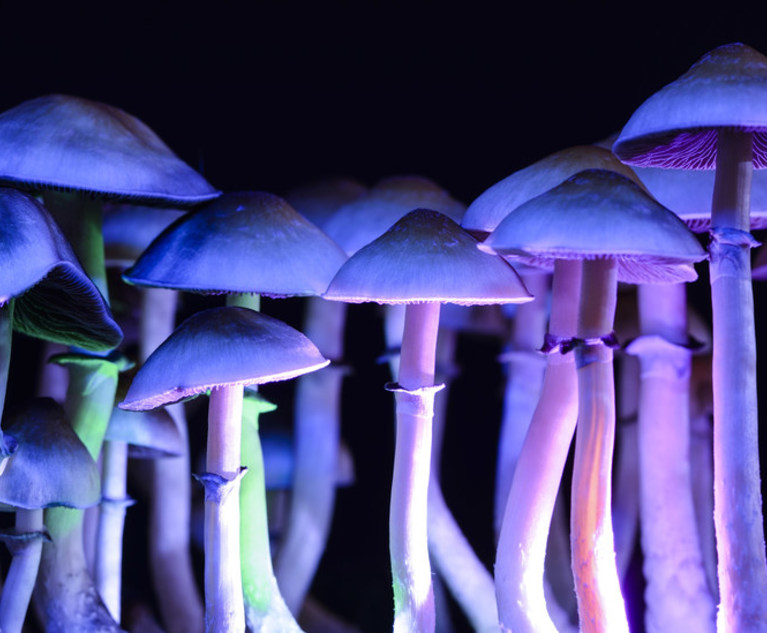With the paint barely dry on the first state-approved stores selling recreational cannabis in New Jersey, the architect of legislation legalizing that drug made another bold proposal: a bill to legalize psilocybin, better known as psychedelic mushrooms.
The lengthy process to establish an infrastructure to produce and regulate cannabis in New Jersey has provided abundant opportunities for New Jersey attorneys, but some observers are less than bullish about S-2934, Senate President Nicholas Scutari’s “Psilocybin Behavioral Health Access and Services Act.”
 Scott Coffina, partner with Montgomery McCracken Walker & Rhoads. Courtesy photo
Scott Coffina, partner with Montgomery McCracken Walker & Rhoads. Courtesy photo
The bill, which would allow use of psilocybin for those 21 and older, establishes a regulatory scheme similar to the one that governs the recreational marijuana industry in New Jersey. The bill is premised on the use of psilocybin to treat depression, anxiety and end-of-life psychological stress.
But the bill is unclear on what steps consumers would have to take to obtain psilocybin, said Scott Coffina, a former Burlington County prosecutor who is with Montgomery, McCracken, Walker & Rhoads in Cherry Hill.
Coffina said he’s concerned that New Jersey’s mushroom legislation appears to be modeled on the medical marijuana law, but the mechanism to qualify as a buyer and the role of the user’s doctor are unclear. Coffina said he fears that the New Jersey mushroom program could turn out like the early days after California legalized medical marijuana, when nearly anyone could qualify for a medical card required to buy the drug.
“As I understand it, this is based on the medical marijuana system, but it’s not as stringent as that. In New Jersey, we had a very tight medical marijuana system. [In the psilocybin bill] I’m not sure I see the same rigor in terms of demonstrating a need for it,” Coffina said.
Coffina also notes that the bill calls for mushroom users to partake of the product at a service center, which would make them unable to drive, but no provision is made for how the user will safely return home.
Coffina, who was the Burlington County prosecutor from 2017 until April of this year, said his office rarely prosecuted defendants for possession of psilocybin, which, like marijuana, was generally dealt with as a disorderly person’s offense at municipal court. Mushrooms are far less concerning than cocaine or heroin, he said.
 Charles Gormally, with Brach Eichler.
Charles Gormally, with Brach Eichler.
The bill also allows for home cultivation of psilocybin for individual use, but Coffina expresses concerns that growing mushrooms at home will lead to uncontrolled quality and potency and will make it easier for children to access the product.
He also raises concerns that allowing use of psilocybin will lead some users to move on to harder drugs.
“As someone who has been on the front lines of the opioid epidemic, I’m hesitant over any law that sends a message to people, particularly young people, that it’s OK to put chemicals in your body to feel better, to change how you’re doing. To me, it inhibits independent coping skills, and once this amount of ingestion, whether it’s marijuana or mushrooms, isn’t working, I think we could see an escalation to other drugs,” Coffina said.
If psilocybin is legalized in New Jersey, the market for it will be a fraction of the size of the cannabis market, said Charles Gormally, co-chair of the cannabis industry practice group at Brach Eichler in Roseland.
“It’s not going to be cannabis 2. If you think about it, the cannabis opportunity attracted accountants and lawyers because essentially you’re taking a multi-billion dollar business that used to be a felony and turning it into a business in New Jersey. You don’t have that size of market dealing with psychedelics or psilocybin products like mushrooms or LSD or anything like that. There is an interest in it,” Gormally said.
“I would suspect if New Jersey were going to move a bill like that I would hope first they focus on getting cannabis right. Get the market up and running, see how it operates, see whether you achieved your social justice goals, which are a very important part of the cannabis regimen in New Jersey. And then if you want to liberalize or decriminalize possession or some type of use of psilocybin, have at it. It’s not a widely used product.”
Gormally says the appeal of psilocybin as a recreational drug is limited because “in full doses its an extremely powerful agent. Its not on the same planet as cannabis.”
Gormally also laments the bill’s call to create an 18-member Psilocybin Behavioral Health Access and Services Advisory Board, playing a role analagous to the Cannabis Regulatory Commission that was formed to oversee the sale of recreational cannabis. Calling that proposal “terrible,” Gormally says “the one thing you don’t need is more agencies that regulate a single, limited market. I think it’s not a prudent way to approach opportunities like this.”
The efforts to legalize recreational marijuana enjoyed wide public support in New Jersey, but it’s unclear whether that will be the case with mushrooms, said Micah Rasmussen, director of the Rebovich Institute for New Jersey Politics at Rider University in Lawrenceville.
Rasmussen said he’s surprised about the timing of the mushroom bill, which was introduced June 23. It would be wise to learn from the lengthy process of building consensus over recreational cannabis and developing a regulatory framework before that drug went on sale to the public, he said.
“I’m sure the senate president will say he has learned from that process but it is one that is still unfolding and finding its sea legs and being worked out. So the timing is a bit of a surprise,” Rasmussen said.
In addition, the approval of recreational cannabis was largely premised on social justice, since people of color were arrested for marijuana offenses far more often than whites, Rasmussen said. “Unless I’m missing something, that is not likely to be an argument with regard to who is using mushrooms or who is being arrested for them, and why they shouldn’t be arrested. It’s hard for me to see social justice as part of this discussion,” he said.
Rasmussen added that the introduction of the mushroom legislation seems to contradict the stated intentions of Scutari, Gov. Phil Murphy and Assembly Speaker Craig Coughlin since the 2021 election to focus on moderate, bread-and-butter issues.
“It’s unclear to me how this is going to play among voters. Is it a bit of an assumption that cannabis is the same as mushrooms in voters’ minds?” Rasmussen said. “I think [Scutari] deserves credit for being bold but I wonder whether this is what voters consider to be their priority.”
NOT FOR REPRINT
© 2024 ALM Global, LLC, All Rights Reserved. Request academic re-use from www.copyright.com. All other uses, submit a request to [email protected]. For more information visit Asset & Logo Licensing.


 Credit: Martina/Adobe Stock
Credit: Martina/Adobe Stock





